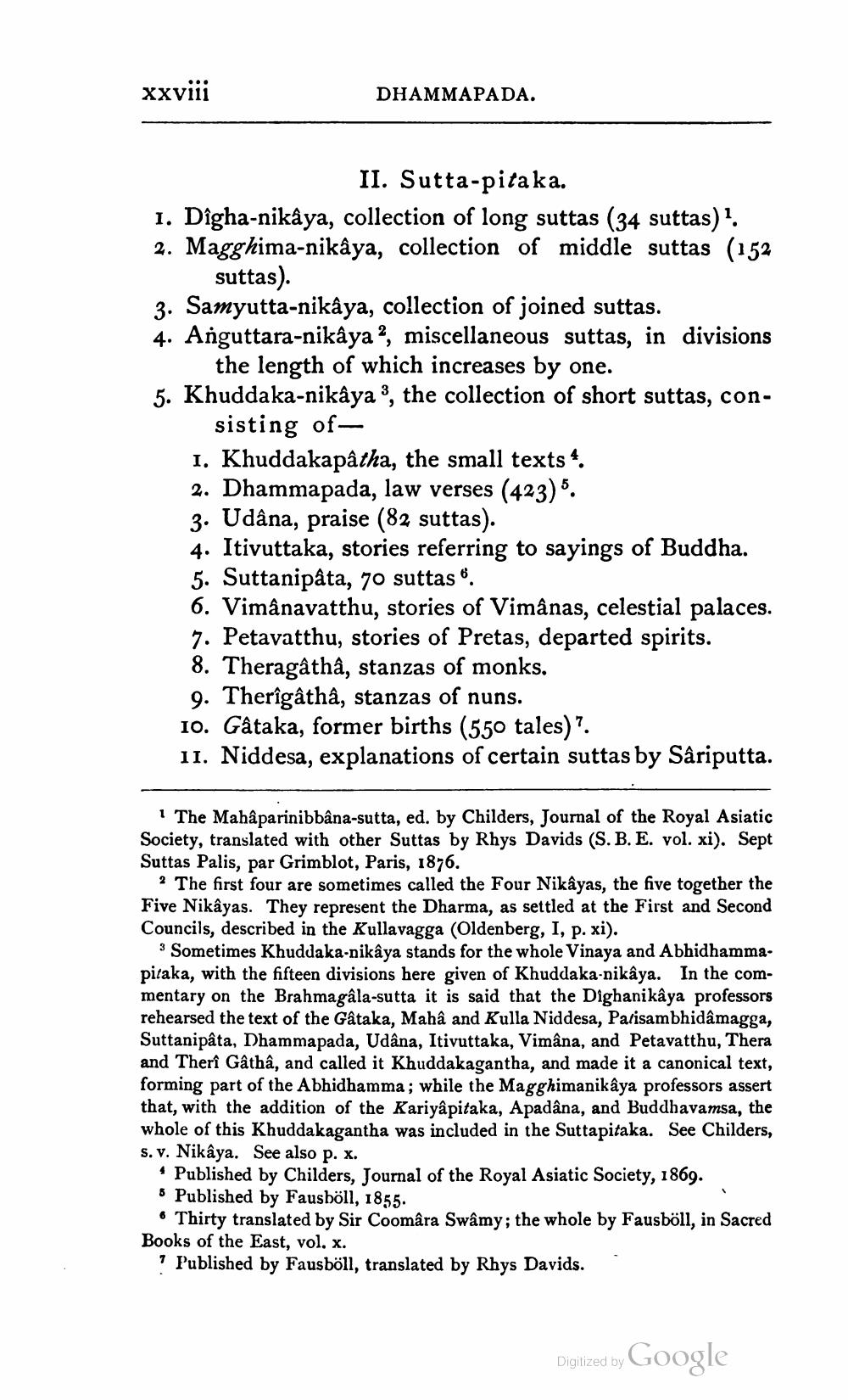________________
xxviii
DHAMMAPADA.
II. Sutta-pitaka. 1. Digha-nikâya, collection of long suttas (34 suttas). 2. Magghima-nikâya, collection of middle suttas (152
suttas). 3. Samyutta-nikâya, collection of joined suttas. 4. Anguttara-nikaya ?, miscellaneous suttas, in divisions
the length of which increases by one. 5. Khuddaka-nikâya 3, the collection of short suttas, con
sisting of 1. Khuddakapâtha, the small texts 4. 2. Dhammapada, law verses (423) 5. 3. Udâna, praise (82 suttas). 4. Itivuttaka, stories referring to sayings of Buddha. 5. Suttanipâta, 70 suttas o. 6. Vimânavatthu, stories of Vimânas, celestial palaces. 7. Petavatthu, stories of Pretas, departed spirits. 8. Theragâthâ, stanzas of monks. 9. Therîgâthâ, stanzas of nuns. 10. Gâtaka, former births (550 tales)?. 11. Niddesa, explanations of certain suttas by Sâriputta.
1 The Mahâparinibbâna-sutta, ed. by Childers, Journal of the Royal Asiatic Society, translated with other Suttas by Rhys Davids (S. B. E. vol. xi). Sept Suttas Palis, par Grimblot, Paris, 1876.
2 The first four are sometimes called the Four Nikâyas, the five together the Five Nikâyas. They represent the Dharma, as settled at the First and Second Councils, described in the Kullavagga (Oldenberg, I, p. xi).
Sometimes Khuddaka-nikâya stands for the whole Vinaya and Abhidhammapitaka, with the fifteen divisions here given of Khuddaka-nikâya. In the commentary on the Brahmagala-sutta it is said that the Dighanikâya professors rehearsed the text of the Gataka, Maha and Kulla Niddesa, Palisambhidâmagga, Suttanipata, Dhammapada, Udâna, Itivuttaka, Vimâna, and Petavatthu, Thera and Therî Gâthâ, and called it Khuddakagantha, and made it a canonical text, forming part of the Abhidhamma; while the Magghimanikâya professors assert that, with the addition of the Kariyâpitaka, Apadâna, and Buddhavamsa, the whole of this Khuddakagantha was included in the Suttapitaka. See Childers, s.v. Nikâya. See also p. X.
• Published by Childers, Journal of the Royal Asiatic Society, 1869. • Published by Fausböll, 1855.
* Thirty translated by Sir Coomâra Swamy; the whole by Fausböll, in Sacred Books of the East, vol. x.
Published by Fausböll, translated by Rhys Davids.
Digitized by Google




